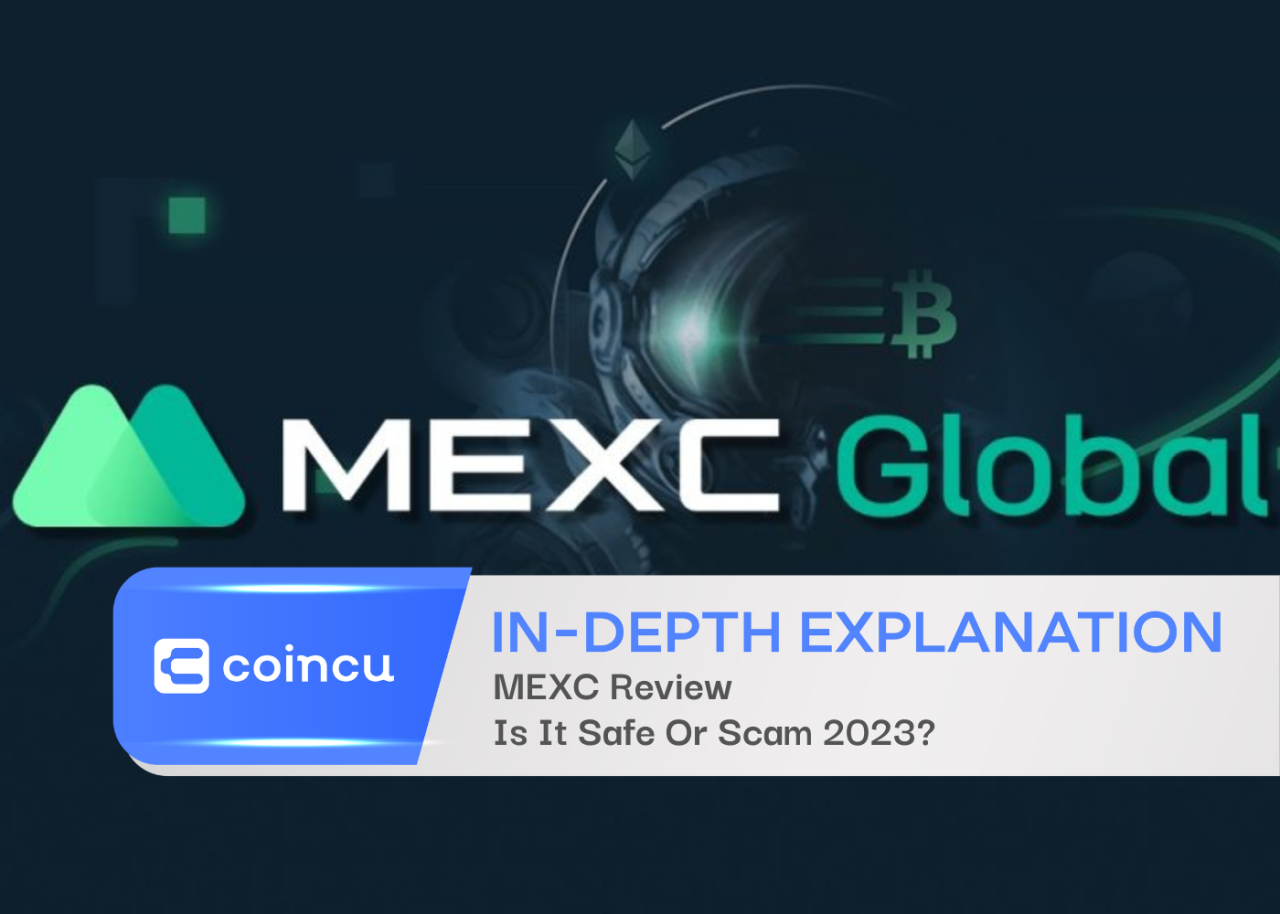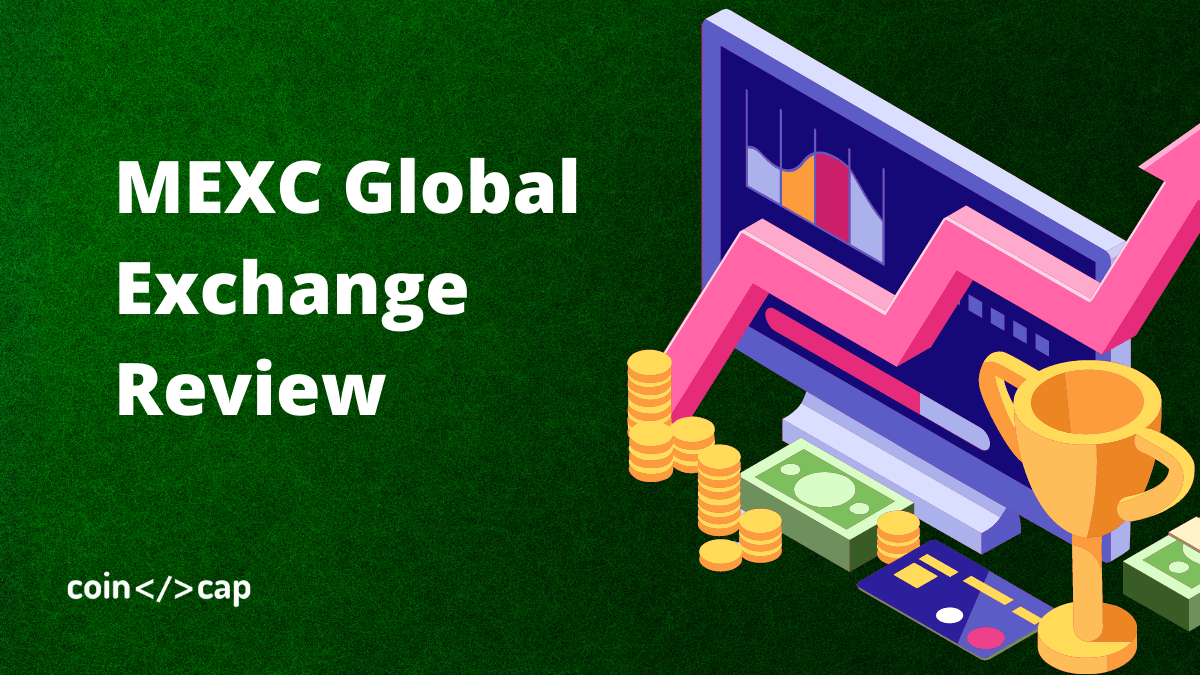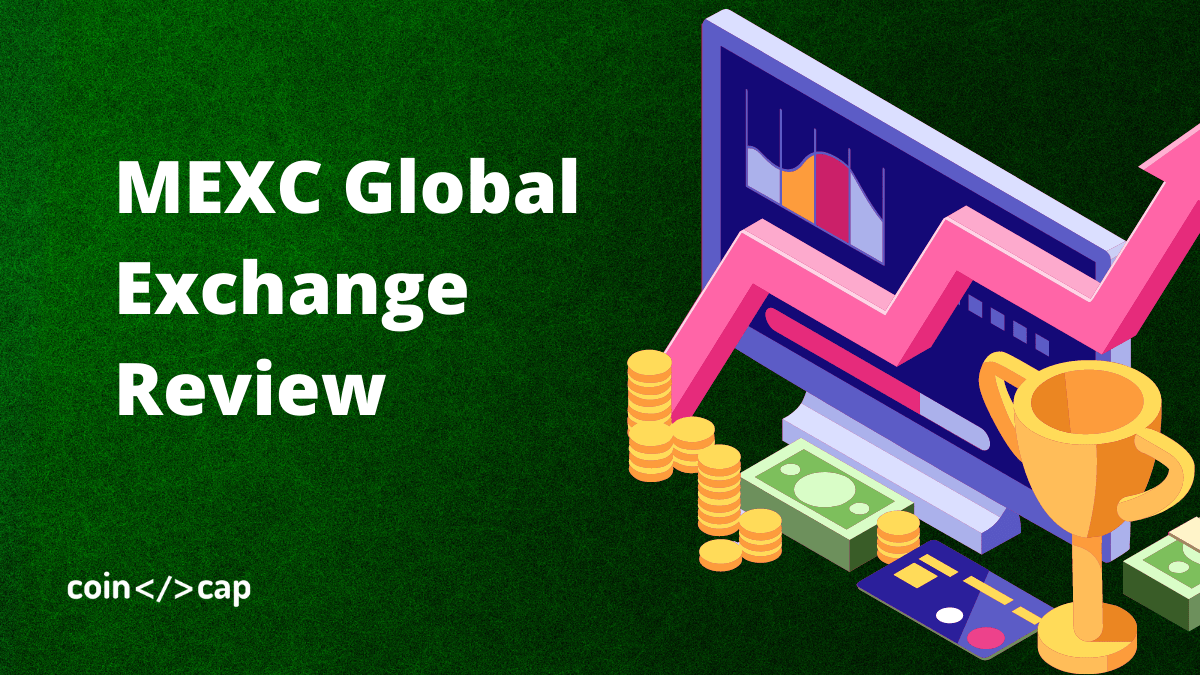Is MEXC exchange officially available and regulated for use in Canada? That’s the burning question, folks! Picture this: you’re ready to dive headfirst into the wild world of cryptocurrency, but before you toss your hard-earned cash into the digital ring, you need to know the rules of the game. MEXC, a global exchange with a reputation as flamboyant as a flamingo in a tuxedo, wants a piece of the Canadian crypto pie.
But is it legally allowed to serve up its digital delicacies north of the border? Let’s unravel this crypto-conundrum together, shall we?
This investigation delves into the regulatory landscape of Canada’s crypto scene, examining MEXC’s global reach and comparing its offerings to those of established, regulated Canadian exchanges. We’ll explore user experiences, potential pitfalls, and the fine print that could make or break your crypto dreams. Buckle up, buttercup, it’s going to be a wild ride!
MEXC Exchange’s Global Availability
MEXC Global, a cryptocurrency exchange with a seemingly boundless appetite for digital assets, operates across a vast swathe of the globe. But unlike your average all-you-can-eat buffet, the menu and regulatory landscape vary significantly depending on your location. Think of it as a culinary adventure where the spice level (risk and regulatory scrutiny) changes dramatically from country to country.MEXC’s global presence is impressive, but navigating its regulatory intricacies requires a keen eye.
So, you’re wondering about MEXC’s Canadian legality? Navigating the crypto regulatory wilderness can be tricky, but thankfully, understanding the legal landscape is crucial. For a clearer picture of what constitutes a secure and legal exchange, check out this detailed review of Newton’s operations: Detailed review of Newton crypto exchange’s legality and security. This should give you a better framework for evaluating MEXC’s situation in Canada – because frankly, crypto regulations are a wild west show!
The exchange boasts a substantial user base, but its operational status and the services available are heavily influenced by local laws and licensing arrangements. This means the experience of trading on MEXC can differ wildly depending on where you’re sitting.
MEXC’s Global Reach and Regulatory Landscape
Understanding MEXC’s global footprint requires a nuanced look at its licensing and regulatory status in different jurisdictions. The following table attempts to summarize this complex picture, but always remember to double-check the latest information directly with MEXC before engaging in any trading activity. Regulations are constantly evolving, and this information is subject to change.
| Country | Regulatory Status | Licensing Information | Notes |
|---|---|---|---|
| Singapore | Unlicensed | No specific license publicly disclosed. | Operates in Singapore but is not officially licensed. Users should be aware of the associated risks. |
| Seychelles | Licensed | May hold a license from the Financial Services Authority (FSA) of Seychelles. Specific details should be verified with MEXC. | The regulatory environment in Seychelles is less stringent than in many other jurisdictions. |
| Various Other Countries | Unlicensed/Gray Area | Limited public information on licensing in most regions. | MEXC’s operation in many countries falls into a regulatory gray area, meaning the legal status is unclear or undefined. Users should exercise caution. |
Service Differences Based on Jurisdiction
The features and services available on MEXC can differ depending on your location. For instance, certain trading pairs, payment methods, or advanced trading tools might be restricted in some regions due to local regulations or internal compliance decisions. This can significantly impact the overall trading experience. Imagine trying to order a spicy vindaloo in a restaurant that only serves mild curries – your culinary expectations would be drastically altered!
Limitations and Restrictions Based on User Location
MEXC might impose limitations on users based on their location, including:
- Restricted Cryptocurrencies: Certain cryptocurrencies might not be available for trading in specific regions due to regulatory restrictions or local market conditions.
- Limited Payment Options: The payment methods accepted for deposits and withdrawals may vary depending on your country of residence.
- Access Restrictions: In some cases, access to specific platform features or functionalities might be limited or unavailable to users from certain countries.
- KYC/AML Requirements: Know Your Customer (KYC) and Anti-Money Laundering (AML) requirements can differ significantly across jurisdictions, leading to variations in the verification process.
It’s crucial to understand these limitations before engaging with the platform to avoid any unpleasant surprises. Always consult MEXC’s official website and terms of service for the most up-to-date information.
Canadian Regulatory Landscape for Crypto Exchanges
Navigating the world of cryptocurrency in Canada requires understanding a regulatory landscape that’s still evolving, but increasingly defined. While not as comprehensively regulated as some traditional financial markets, Canada is taking a measured approach, aiming to balance innovation with consumer protection. This involves a blend of existing securities laws and emerging crypto-specific guidelines.The Canadian regulatory framework for cryptocurrency exchanges is a patchwork quilt of existing laws and newly developing regulations.
It’s less a clearly defined map and more a series of signposts pointing towards a more regulated future. This approach reflects the government’s cautious yet forward-looking stance on the burgeoning crypto industry.
Regulatory Bodies Overseeing Cryptocurrency Activities
Several government bodies share responsibility for overseeing cryptocurrency activities in Canada. This distributed responsibility can sometimes lead to ambiguity, but it also allows for a more nuanced approach to different aspects of the crypto market. The primary players include the Ontario Securities Commission (OSC), the British Columbia Securities Commission (BCSC), and the federal government through the Office of the Superintendent of Financial Institutions (OSFI).
Each has a different area of focus, leading to a complex yet multifaceted regulatory system.
Licensing Requirements for Cryptocurrency Exchanges
Licensing requirements for cryptocurrency exchanges operating in Canada vary depending on the province or territory and the specific services offered. Generally, exchanges dealing in securities tokens will fall under the purview of provincial securities commissions, such as the OSC or BCSC. These commissions often require registration or licensing before an exchange can operate legally. The specific requirements can be quite detailed, encompassing aspects like anti-money laundering (AML) compliance, know-your-customer (KYC) procedures, and robust cybersecurity measures.
Failure to comply can lead to significant penalties, including fines and legal action. Exchanges offering other cryptocurrencies that are not considered securities may face less stringent requirements, though the regulatory landscape is constantly shifting, and clarity is still evolving. The exact requirements often depend on the specific cryptocurrency being traded and its classification under securities law. For example, a token that represents ownership in a company would likely be treated as a security, subject to stricter regulations than a token used solely for utility within a decentralized application.
So, you’re wondering if MEXC is officially cool to use in Canada? The regulatory landscape for crypto is a wild west, so due diligence is key. If you’re looking for a safer bet, maybe explore some more established options – check out The best currency trading apps with advanced features for some alternatives. Ultimately, figuring out if MEXC fits your Canadian crypto needs is entirely up to you (and your comfort level with regulatory gray areas!).
MEXC’s Status in Canada: Is MEXC Exchange Officially Available And Regulated For Use In Canada?

Navigating the world of cryptocurrency exchanges can feel like traversing a minefield of regulations and legalese. So, let’s shine a light on MEXC’s presence (or lack thereof) in the Great White North. Is it a frosty welcome or a warm embrace for Canadian crypto enthusiasts? Let’s find out.MEXC’s official website is the first port of call when determining its availability in Canada.
A thorough investigation is required to uncover any explicit statements regarding Canadian users. The absence or presence of such a statement directly impacts the exchange’s legal standing and the level of risk associated with its use by Canadian residents.
MEXC’s Explicit Statements Regarding Canadian Availability
Determining MEXC’s official stance on Canadian users requires a careful examination of their website. Unfortunately, finding a clear, concise statement confirming or denying service in Canada proves elusive. A hypothetical scenario: if a statement were found, a screenshot description might read: “A banner at the top of the homepage displays a world map with Canada highlighted, accompanied by text stating ‘MEXC services are available globally, including Canada.
Please ensure you comply with all local regulations.'” This, of course, is a hypothetical example; the actual website may differ. The lack of such a readily apparent statement, however, is noteworthy.
So, you’re wondering if MEXC is legit in Canada? The regulatory landscape for crypto is a bit like a penalty shootout – unpredictable! To take a break from the suspense, check out the latest football news for some guaranteed excitement. Then, back to the MEXC question: Sadly, a definitive answer requires more digging than a midfield battle for the ball.
Official MEXC Press Releases Concerning Canadian Operations
A comprehensive search for official press releases or announcements from MEXC regarding Canadian operations has yielded no results. This absence of public communication reinforces the ambiguity surrounding the exchange’s legal status within Canada. Silence, in this case, speaks volumes (or perhaps, deafeningly little).
Comparison of MEXC’s Stated Policies (or Lack Thereof) with Canadian Regulations
Without explicit statements from MEXC about its Canadian operations, a direct comparison with Canadian regulations is impossible. Canadian regulations surrounding cryptocurrency exchanges are complex and evolving, demanding compliance with anti-money laundering (AML) and know-your-customer (KYC) rules. The absence of clear communication from MEXC leaves Canadian users in a position of uncertainty regarding their legal standing when using the platform.
Using an unregulated exchange carries inherent risks, including potential legal ramifications and the loss of funds. The situation highlights the importance of due diligence before engaging with any cryptocurrency exchange, particularly in a regulated market like Canada.
So, you’re wondering if MEXC is legit in Canada? Navigating the regulatory landscape of crypto is trickier than herding cats, especially when considering investments like gold-backed currencies – before diving in, understanding the risks and rewards is crucial, so check out this helpful guide: Understanding the risks and rewards of golden currency investments. Then, armed with that knowledge, you can make a more informed decision about whether MEXC fits your Canadian crypto strategy (or if you should stick to maple syrup futures).
User Experiences and Reports from Canada
Navigating the world of cryptocurrency exchanges in Canada can feel like a wild goose chase, especially when dealing with platforms not explicitly regulated within the country. Let’s delve into the online chatter surrounding MEXC’s Canadian user experiences, separating fact from fiction (and maybe a few tall tales).Online discussions reveal a mixed bag of experiences regarding MEXC’s accessibility and usability from Canada.
So, you’re wondering if MEXC is officially a Canadian crypto-playground? The regulatory landscape for exchanges north of the border can be a bit of a wild west, so before you dive in headfirst, it’s wise to check out some alternatives. For a helpful comparison of Canadian crypto exchanges, check out this handy guide: Comparing different Canadian exchanges for buying and selling crypto.
Ultimately, knowing your options is key to ensuring you’re trading safely and legally within Canada, so you don’t end up with more questions than answers about MEXC’s status.
While some users report smooth sailing, others have encountered various hurdles. The lack of official regulation casts a long shadow over these experiences, making it crucial to understand the potential pitfalls.
So, you’re wondering if MEXC is legit in Canada? The regulatory landscape for crypto is a wild west, eh? If you’re looking for a more established Canadian option, check out this Wealthsimple Crypto review: fees, security, and user experience for a clearer picture. Ultimately, doing your own research on MEXC’s Canadian availability is crucial before diving in – safety first, especially with your digital dough!
User Reported Experiences with MEXC in Canada, Is MEXC exchange officially available and regulated for use in Canada?
Anecdotal evidence from online forums and social media suggests a range of experiences. Some Canadian users report successful trading and account management, highlighting the platform’s features and user interface as positive aspects. However, others describe difficulties in depositing and withdrawing Canadian dollars, citing prolonged processing times or unexpected fees. Some users also express concerns about communication with customer support, suggesting a lack of readily available assistance for Canadian users.
- Successful trading experiences reported by some users.
- Challenges with CAD deposits and withdrawals, including delays and unexpected charges.
- Concerns raised regarding the responsiveness and effectiveness of customer support for Canadian users.
- Reports of varying levels of accessibility to certain features or functionalities depending on the user’s location in Canada.
Potential Risks of Using Unregistered Exchanges in Canada
Using unregistered or unregulated cryptocurrency exchanges like MEXC in Canada carries significant risks that can be categorized into legal, financial, and security concerns. Understanding these risks is paramount before engaging with such platforms.
Legal Risks
Operating in a regulatory grey area exposes users to potential legal repercussions. Canadian securities laws are evolving rapidly in the crypto space, and using an unregistered exchange could leave users vulnerable to fines or legal action if the platform’s activities are deemed to violate Canadian regulations. The lack of a clear regulatory framework also means there’s limited recourse if disputes arise with the exchange.
Financial Risks
Financial risks are substantial. Unregistered exchanges lack the regulatory oversight that protects users’ funds in regulated exchanges. This increases the likelihood of fraud, scams, and the loss of invested capital. The absence of robust investor protection mechanisms means users have limited options if the exchange experiences financial difficulties or collapses. For example, imagine a scenario where the exchange goes bankrupt; recovering your funds might be extremely difficult or even impossible.
Security Risks
Security is a major concern. Unregistered exchanges may not adhere to the same stringent security standards as regulated platforms, increasing the vulnerability of user accounts and funds to hacking, theft, and other security breaches. The lack of robust security measures could expose sensitive personal and financial information to malicious actors. Consider a hypothetical situation where a data breach occurs, exposing user information including banking details; the consequences could be severe.
Comparison with Regulated Canadian Exchanges
Choosing a cryptocurrency exchange is a bit like choosing a flavour of ice cream – there are tons of options, each with its own unique (and sometimes questionable) ingredients. While MEXC offers a tempting array of choices and features, it’s crucial to compare it against the regulated Canadian exchanges to understand the potential trade-offs. Let’s dive into the delicious (or potentially disastrous) details.
This comparison focuses on key aspects that Canadian investors should consider when deciding whether MEXC’s adventurous spirit aligns with their risk tolerance and regulatory comfort level. Remember, regulated exchanges offer a level of protection that unregulated ones often lack.
Feature Comparison of MEXC and Regulated Canadian Exchanges
The following table compares MEXC with hypothetical examples of regulated Canadian exchanges, “MapleCrypto” and “BeaverCoin.” Note that specific fees and offerings vary between exchanges and are subject to change. This is a simplified comparison for illustrative purposes. Always check the latest information on the respective exchange websites.
| Feature | MEXC | MapleCrypto | BeaverCoin |
|---|---|---|---|
| Trading Fees | Variable, generally competitive, but may fluctuate. | 0.1%
|
0.15% flat fee for all trades. |
| Security Measures | Uses various security protocols but lacks the regulatory oversight of Canadian exchanges. | OSFI regulated, employing robust security protocols including cold storage and two-factor authentication. | Registered with FINTRAC, implementing advanced security measures and regular audits. |
| Available Cryptocurrencies | Wide range, including many lesser-known tokens. | Offers a selection of major cryptocurrencies with a focus on established and regulated assets. | Similar to MapleCrypto, with a curated selection of cryptocurrencies. |
| Customer Support | Availability and responsiveness may vary. | Provides dedicated customer support channels with guaranteed response times. | Offers multilingual customer support with various contact methods. |
| Regulatory Compliance | Not currently regulated in Canada. | Fully compliant with Canadian securities regulations. | Fully compliant with Canadian securities regulations. |
Advantages and Disadvantages of Using MEXC Compared to Regulated Canadian Exchanges
Weighing the pros and cons is crucial before committing your hard-earned digital dollars.
Advantages of MEXC (potentially): Wider selection of cryptocurrencies, potentially lower fees (though this can fluctuate), access to innovative trading features.
Disadvantages of MEXC: Lack of regulatory oversight in Canada, higher risk of scams or security breaches, potential difficulties with customer support, and limited recourse in case of disputes.
Advantages of Regulated Canadian Exchanges (like MapleCrypto and BeaverCoin): Regulatory protection, higher security standards, better customer support, greater trust and confidence.
Disadvantages of Regulated Canadian Exchanges: Potentially higher fees, smaller selection of cryptocurrencies compared to MEXC.
Key Differences Summary
| Feature | MEXC | Regulated Canadian Exchanges |
|---|---|---|
| Regulation | Unregulated in Canada | Regulated in Canada |
| Security | Higher risk | Lower risk |
| Cryptocurrency Selection | Wider | More limited |
| Fees | Potentially lower, but variable | Generally higher, but more consistent |
| Customer Support | Variable quality | Generally better |
Final Summary

So, is MEXC officially available and regulated in Canada? The answer, my friend, is less a definitive “yes” or “no” and more a nuanced “it’s complicated.” While MEXC operates globally, its availability and regulatory compliance in Canada remain a grey area. Navigating this landscape requires caution, thorough research, and a healthy dose of skepticism. Remember, the crypto world is a thrilling frontier, but tread carefully – your financial well-being depends on it! Always prioritize regulated exchanges to protect yourself from the potential perils of the unregulated wild west.
